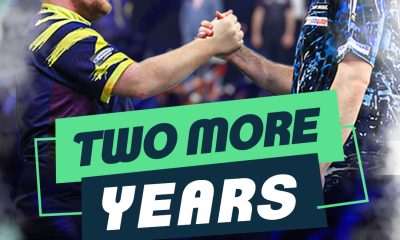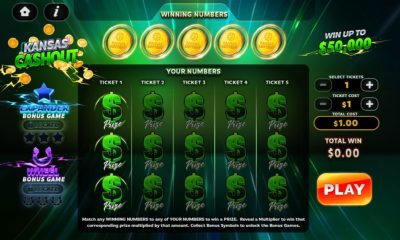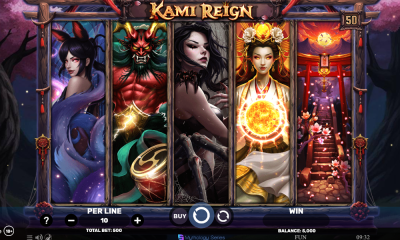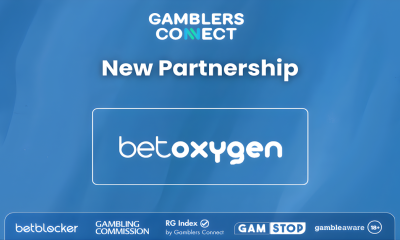FanDuel
FanDuel and NBA Partner to Bring Fans Three Months of NBA League Pass
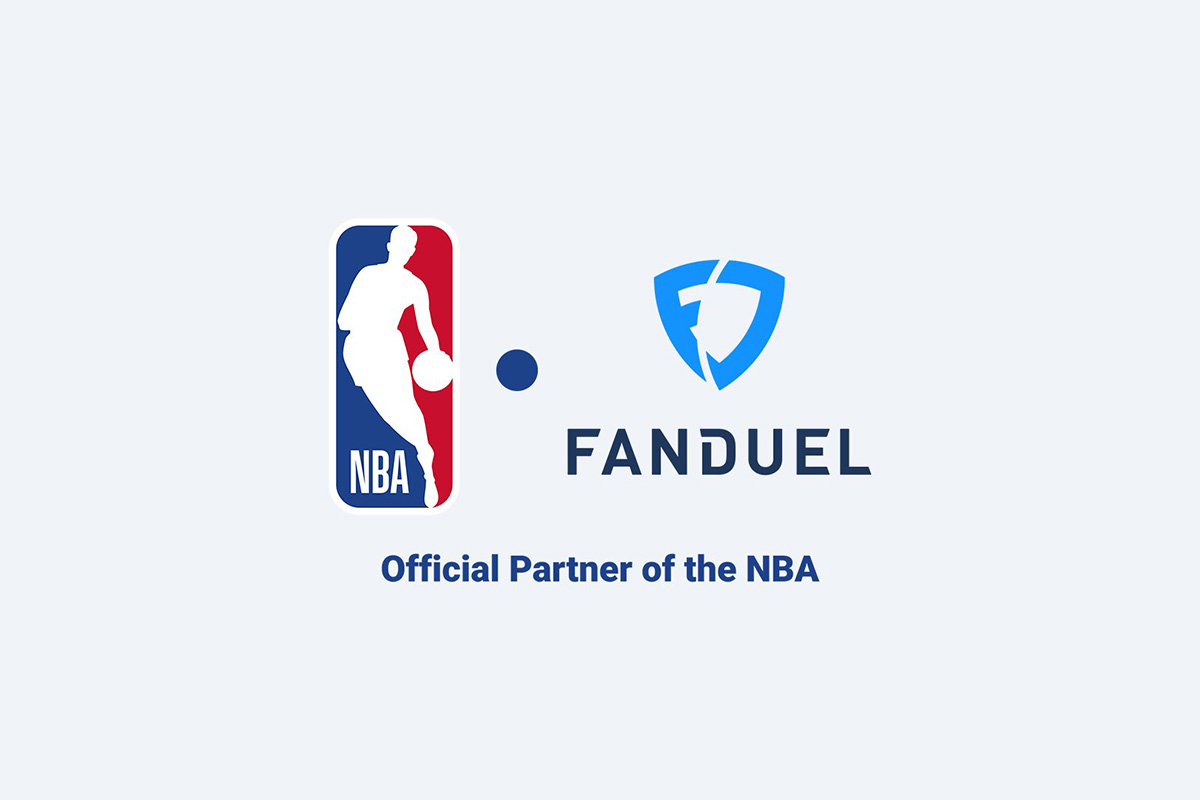
FanDuel, North America’s premier online gaming company and an Official Sports Betting Partner of the National Basketball Association (NBA), has become the only U.S. sports betting operator offering fans three months of NBA League Pass. The sportsbook is also introducing an exciting new product feature that will help fans bet on key moments in a game in real-time to start the season.
To help fans catch every moment live this season, between October 19 and October 26, new FanDuel Sportsbook customers who place a $5 bet will receive three complimentary months of NBA League Pass and $200 in Bonus Bets. Existing customers who bet $5 on the NBA will also receive three complimentary months of NBA League Pass, allowing fans to watch and wager live on all out-of-market games. Fans can take advantage of the NBA League Pass offer through December 11. Additionally, fans who are part of the league’s global membership program – NBA ID – will have access to special benefits and offers via FanDuel.
“FanDuel is committed to offering the top sportsbook product on the market and elevating the entertainment experience for fans this NBA season. This year, we’re leveraging the power of our NBA partnership and our industry-leading platform to create an ecosystem where fans can bet on pivotal moments in a game in real-time and watch to see the results, elevating their sports betting and entertainment experience,” Mike Raffensperger, Chief Commercial Officer of FanDuel, said.
The Pulse is a new curated experience on FanDuel Sportsbook that follows the biggest storylines in sports and offers live bets on the moments that matter most. As the action unfolds, new bets will be added to the feed in a narrative-driven format, offering fans a simple and streamlined path to discover what is happening in a game in real-time. This will allow fans to wager on a point guard picking apart the defense or on a forward who is lighting up the scoreboard and dropping his next three. The Pulse is available on the FanDuel homepage through the Live Now icon during the biggest primetime games.
For the first time, FanDuel is offering Live Same Game Parlay betting across every NBA game this season, further enhancing the in-game betting and entertainment experience for fans. Through Live Same Game Parlay, fans can build parlays as the action unfolds during a game, creating new opportunities to engage with a match-up every quarter.
Bet Tracking
FANDUEL AND FANDUEL SPORTS NETWORK CONTINUE BROADENING STRATEGIC PARTNERSHIP WITH LAUNCH OF BET TRACKING ACROSS SELECT NBA AND NHL GAMES
FanDuel, the premier online gaming company in North America, and Main Street Sports Group, owner of FanDuel Sports Network, the largest holder of local sports media rights, announced the launch of Bet Tracking, an interactive viewing feature that now allows fans in select markets to follow their FanDuel Sportsbook bets in real time while watching live NBA and NHL games on FanDuel Sports Network. Now live, in the markets where online sports betting is legal, the new integration marks another milestone in creating an interactive, participatory viewing experience for local fans.
Over the past year, the strategic partnership between FanDuel and Main Street Sports Group has helped enhance the local sports viewing experience and deepen FanDuel’s presence in regional markets. Built on FanDuel Sports Network’s in-house technology platform and powered by FanDuel’s account-linking system, Bet Tracking bridges live game action with fans’ wagers, updating in real time as play unfolds.
Bet Tracking has officially launched across select FanDuel Sports Network NBA broadcasts including the Cleveland Cavaliers, Charlotte Hornets, Detroit Pistons, Indiana Pacers, and Memphis Grizzlies, as well as NHL coverage of the Carolina Hurricanes, Columbus Blue Jackets, Detroit Red Wings, Nashville Predators, and St. Louis Blues. The feature is available to fans in those markets by logging onto FanDuelSportsNetwork.com or the FanDuel Sports Network app using their direct-to-consumer (DTC) or pay-TV credentials, as well as Prime Video.
“The integration of Bet Tracking into live NBA and NHL games on FanDuel Sports Network represents another significant milestone in our partnership and our commitment to delivering an unparalleled viewing experience to fans,” said Mike Raffensperger, President of Sports, FanDuel. “Over the past year, our partnership with FanDuel Sports Network has elevated our brand presence, deepened engagement across our products, and proven the impact of combining live local sports with interactive technology. We look forward to continuing this successful partnership and exploring new ways to collaborate in the future as we remain committed to driving innovation at the intersection of sports entertainment and betting.”
In addition to bet tracking, the partnership has introduced additional fan-first experiences, including:
- Account linking capabilities, so fans can connect their FanDuel Sportsbook account directly to FanDuel Sports Network, enabling the Bet Tracking feature and making it simpler to toggle between the two offerings.
- Expanded on-screen odds integrations into nightly NBA and NHL broadcasts, giving viewers up-to-date information during the same markets and broadcasts where Bet Tracking is available.
- Broadened live content portfolio including shared premier live events rights such as EuroLeague Basketball and PDC Darts, plus syndicated content from The Ringer that provides betting insights powered by FanDuel odds.
- Exclusive offers including a “Bet $5, Get 3 Months on Us” promotion in which customers who place a $5 bet in FanDuel Sportsbook or enter any paid FanDuel daily fantasy contest will receive a trial subscription to FanDuel Sports Network’s DTC streaming service.
- Joint activation around Missouri’s Sportsbook launch featuring in-market events, on-air integrations and promotions, and elevated VIP experiences tied to the state’s legalization of online sports betting on December 1.
“In markets where FanDuel Sports Network and FanDuel’s Sportsbook operate together, we’re seeing meaningful, sustained growth,” said Eric Ratchman, Chief Revenue Officer, Main Street Sports Group. “Fans who engage with FanDuel’s on-screen integrations are watching nearly twice as many games per season and staying connected with our product more than 40 days longer on average. That level of engagement underscores the power of how this partnership is helping to shape the future of local sports viewing.”
A Transformational Year of Growth and Innovation
Since the partnership’s launch last fall, FanDuel and FanDuel Sports Network have introduced a series of fan-first experiences that have expanded access, elevated engagement, and deepened local market connections. Key accomplishments from the first year include:
- Rebranding 15 regional networks under the FanDuel Sports Network name, making FanDuel a household brand across millions of homes.
- Launching new in-game odds integrations with the Cincinnati Reds and Detroit Tigers.
- Shared commitments to promoting responsible gaming using FanDuel Sports Networks reach to encourage viewers to use FanDuel’s responsible gaming tools and highlight available support resources.
- Introducing exclusive offers for DTC subscribers.
- Expanding programming by simulcasting FanDuel TV’s Up & Adams and Run It Back on FanDuel Sports Network.
The post FANDUEL AND FANDUEL SPORTS NETWORK CONTINUE BROADENING STRATEGIC PARTNERSHIP WITH LAUNCH OF BET TRACKING ACROSS SELECT NBA AND NHL GAMES appeared first on Americas iGaming & Sports Betting News.
American gambling industry
Gaming Americas Weekly Roundup – November 24-30

Reading Time: 2 minutes
Welcome to our weekly roundup of American gambling news again! Here, we are going through the weekly highlights of the American gambling industry which include the latest news and new partnerships. Read on and get updated.
Latest News
VGO Promo, a long-standing platform known for bridging the worlds of cryptocasinos, cryptocurrency exchanges and CSGO skins gaming, has announced a comprehensive expansion of its verification framework designed to bring transparency to online promotional offers. The updated system enhances how users evaluate bonuses across three intersecting ecosystems. Founded during the peak of the CSGO skins economy, VGO Promo originally provided referral codes for case opening websites and virtual item platforms. As the industry evolved towards blockchain based gaming, Bitcoingambling and crypto trading, VGO Promo expanded its scope to support modern platforms including Roobet, Stake, Rollbit, CSGORoll, Duelbits, Binance, OKX, ByBit, Bitget and various case opening services within the CSGO community. The updated verification framework applies a structured, cross industry methodology to help users navigate rapidly changing promotional conditions.
FanDuel has announced the launch of Pass The Leg, a first-of-its-kind in-app feature that transforms traditional parlay betting into a shared, social experience just in time for holiday gatherings. Pass The Leg allows customers to build a single group parlay collaboratively, with each participant adding their own leg before placing individual bets using their own funds. Designed to bring friends and family together around one of the biggest football days of the year whether near or far, the feature allows users to start or join a Group Build, invite others to contribute picks, and then add the completed parlay to their personal betslip. Each contributor can also take advantage of a dedicated Pass The Leg Profit Boost, amplifying the excitement and potential payout of the shared pick. Available exclusively for the three NFL games taking place on Thanksgiving Day, Pass The Leg marks the first true multi-user parlay-building experience offered by a major U.S. sportsbook operator.
Partnerships
The St. Louis Blues announced an agreement designating DraftKings an Official Sports Betting and Daily Fantasy Operator of the Blues. The announcement comes ahead of the launch of legal sports betting in Missouri scheduled for Dec. 1, 2025. DraftKings has been an Official Sports Betting, Daily Fantasy Sports and iGaming Partner of the National Hockey League since 2021. As part of the agreement, DraftKings will spotlight responsible gaming through a pregame, in-arena feature, encouraging fans to play responsibly, have fun and access DraftKings’ comprehensive suite of responsible gaming tools and resources. DraftKings will have rights to use St. Louis Blues intellectual property — including team trademarks and logos — across marketing and promotional materials. The collaboration will feature in-arena signage, brand integrations across television and radio and exclusive hospitality experiences throughout the season, all designed to elevate fan engagement at the Enterprise Centre and beyond.
Signature Systems Inc (SSI) has announced a new partnership with Yellow Dog Software. The integration connects Yellow Dog’s advanced inventory capabilities with SSI’s PDQ POS system, enabling operators to streamline operations, improve cost control and gain real-time visibility across their properties. The partnership was initiated to meet the inventory needs of Osage Casinos, a major name in tribal gaming. The integration, which went live in September, was first deployed to support convenience store reporting and ordering across the properties.
The post Gaming Americas Weekly Roundup – November 24-30 appeared first on European Gaming Industry News.
FanDuel
FanDuel Debuts New Peer to Peer Fantasy Product “FanDuel Picks” in Select States
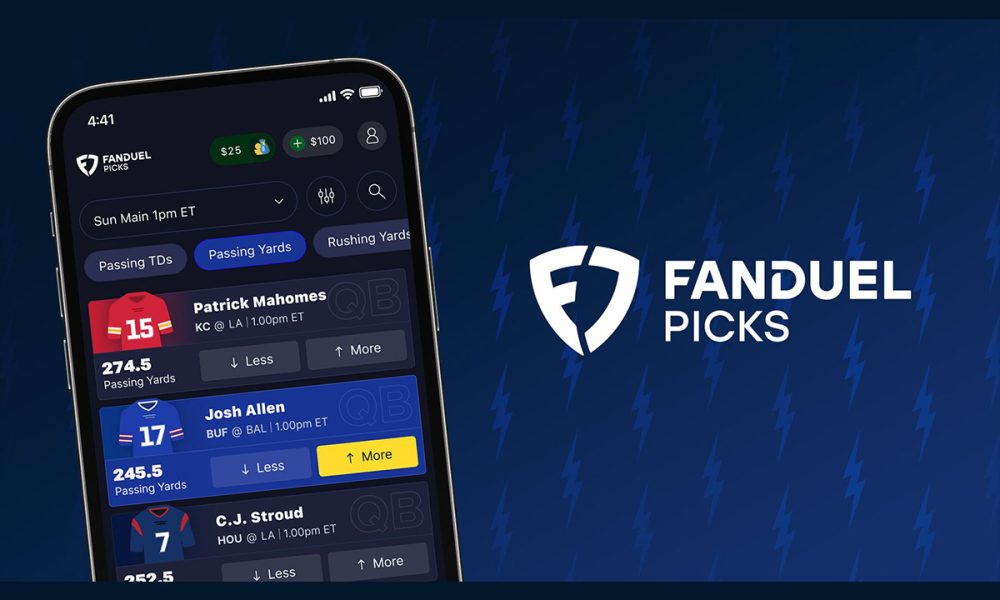
FanDuel, North America’s premier online gaming company, is introducing FanDuel Picks, a new peer-to-peer fantasy sports product. FanDuel Picks offers fans a simplified way to engage with their favorite athletes and a chance to win up to 1000x their entry fee by building lineups and selecting whether the athletes will beat their projected stats during games. Customers new to FanDuel Picks who play $5 will get $60 in bonus funds.
With FanDuel Picks, customers can pick three to six players, select “more” or “less” on the players’ projected stat lines and set their contest entry amount. Customers earn points for every correct selection, and customers with the highest score win a share of the prize pool.
“Just in time for NFL season, we are excited to bring fans a social way to engage with the sports and athletes they love with the launch of FanDuel Picks. The ‘more’ or ‘less’ selection model offers a streamlined fantasy sports experience, and we look forward to offering our customers another way to interact with games this season,” said Rob Cullen, FanDuel Picks General Manager.
FanDuel Picks is now available in 17 states, including Alabama, Alaska, Arkansas, Georgia, Minnesota, Missouri, Nebraska, New Hampshire, New Mexico, North Dakota, Oklahoma, Oregon, Rhode Island, South Dakota, Texas, Utah, and Wisconsin.
The post FanDuel Debuts New Peer to Peer Fantasy Product “FanDuel Picks” in Select States appeared first on Gaming and Gambling Industry in the Americas.
-

 iGaming News 20264 days ago
iGaming News 20264 days agoSpinomenal Rings in 2026 with Japanese-Inspired “Kami Reign Ultra Mode”
-

 Hold and4 days ago
Hold and4 days agoPragmatic Play Rings in 2026 with Joker’s Jewels Hold & Spin™
-

 Five Elements Slot4 days ago
Five Elements Slot4 days agoPG Soft Concludes 2025 with High-Volatility Launch: Mythical Guardians
-

 Latest News4 days ago
Latest News4 days agoFrom ‘Mummyverse’ to Crash Games: Belatra Reviews a Landmark 2025
-

 Bespoke Gaming Studio4 days ago
Bespoke Gaming Studio4 days agoCreedRoomz and Casumo Forge Strategic Partnership to Elevate Live Casino Experience
-

 Barbarossa Dragon Empire3 days ago
Barbarossa Dragon Empire3 days agoPeter & Sons Expands Ontario Footprint with Major Casino Time Content Deal
-

 Akshat Rathee3 days ago
Akshat Rathee3 days agoIndian Esports 2026: Strategic Growth and the Asian Games Milestone
-

 B2B gaming software4 days ago
B2B gaming software4 days agoGamblers Connect and BetOxygen Announce Strategic B2B Partnership







